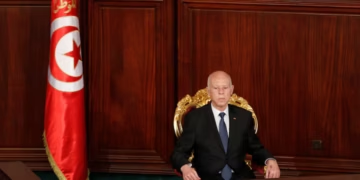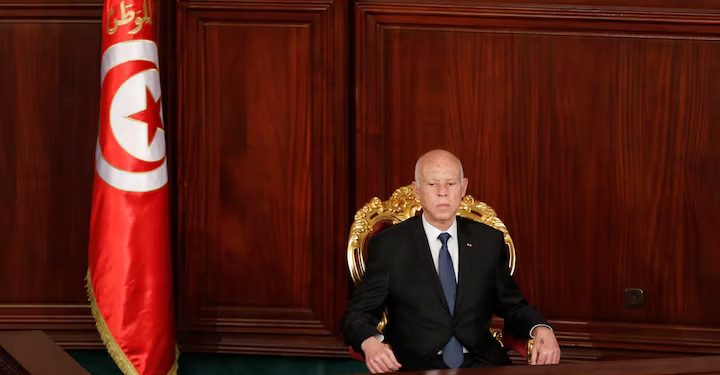By Enyichukwu Enemanna
An Appeal Court in Tunisia has handed jail terms as high as 45 years on opposition leaders, businessmen and lawyers, a court document indicates, in what critics said signals President Kais Saied’s increasing authoritarian rule in the African nation.
Forty people were charged in connection with allegation of conspiracy to overthrow the President in what analysts say is one of the largest political prosecutions in Tunisia’s recent history. Twenty of those charged have fled abroad but were sentenced in absentia.
The sentences ranged from five to 45 years, Reuters reported, citing a court document.
Rights groups, including Human Rights Watch and Amnesty International, said the case is an escalation of Saied’s crackdown on dissent since he seized extraordinary powers in 2021.
Critics, journalists and activists have been jailed while independent NGOs have been slammed with suspension.
“This is a judicial farce… There is a clear intent to eliminate political opponents,” Mokthar Jmai, a lawyer for the defendants, said on Thursday after the trial.
Authorities say the defendants, who include former officials and the former head of intelligence, Kamel Guizani, tried to destabilise the country and overthrow Saied.
Prominent opposition figures including Ghazi Chaouachi, Issam Chebbi, Jawahar Ben Mbarek and Ridha Belhaj, received jail terms of 20 years, another lawyer for the defendants, Dalila ben Mbarek, said. Politician Noureddine Bhiri was sentenced to ten years in prison.
They have all been in custody since 2023 when they were arrested.
The prominent opposition figure Chaima Issa, was sentenced to 20 years, Nejib Chebbi, the leader of the main National Salvation Front opposition coalition, received 12 years, and Ayachi Hammami got five years.
The three are currently free, but authorities are expected to enforce their arrest.
The maximum sentence was 45 years for businessman Kamel Ltaif, while opposition politician Khyam Turki received a 35-year sentence.
Rights groups say Saied has controlled the judiciary since dissolving parliament in 2021, ruling by decree, dissolving the independent Supreme Judicial Council and sacking dozens of judges in 2022.




































